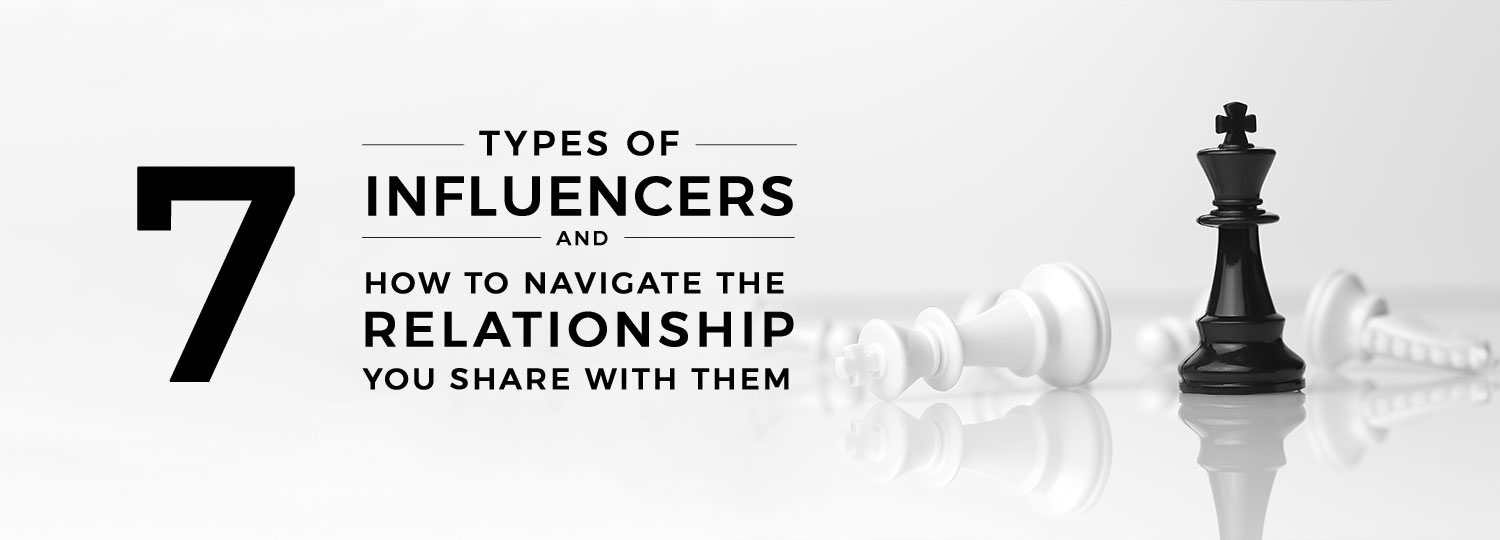
Social media is a great tool for brands to engage in influencer marketing. If you are running social media marketing campaign, an Influencer campaign should be a part of your social media engagement strategy.
Everyone defines an Influencer differently. By and large, an Influencer is someone who has the authority and power to direct and seek ‘ favour’ out of their network.
When you are reaching out to the Influencers to run your social influencer marketing campaign, you must know who their audience is. There should be some similarity with yours.
The more targeted the Influencer is to your audience, the more impact you will have on your influencer marketing campaigns.
Here are 7 types of influencers on Social Media:
Types of Influencers
#1 The Social Butterfly
The Social Butterfly has extensive networks – they are normally the ones with a great number of followers on social media. Due to their large network, it is very effective to engage them as influencers when you want to spread awareness about your campaign – which could involve social functions or parties.
#2 The Thought Leader
People look to thought leaders to help them understand about new developments in their specific industries, as their deep understanding of their fields translate into authority and credibility valued by customers. Thought Leaders would make the best ambassador for a brand and are easily spotted as they are the key people who can create many conversations about a particular topic.
#3 The Early Adopter
The Early Adopter would be the first ones trying out new things available. They are best suited for brands that are launching a new product or technology. Let them in on the new idea and they will be the people most excited about trying it out and sharing it with the world. Early Adopters will be able to create hype and conversations about any new product or introduction.
#4 The Celebrity
Celebrity influencers are the height of influence – the go-to when you need your product or campaign to become popular. They are very popular with a large following due to their fanbases. They are admired by the masses and can be very influential without even trying. Although they can get pretty expensive to engage, massive publicity is guaranteed.
It is helpful to keep local celebrities in mind, too. Although they may not be as influential as their international counterparts, they do have the advantage of being more relatable to local audiences. It is also a bonus if they have authority in a niche area. Celebrities are also well-covered in the media, which could have a larger ripple effect of influence.
#5 The Expert
The expert may not have the popularity of celebrities, but he or she represents a specialist with credentials in a particular field, topic or industry – and therefore his or her opinions are second to none. Thus as an influencer, he can help you to achieve expert validation for the value proposition your brand wants to communicate. If you want to convince people that your product is necessary, you would want the expert to agree with you.
#6 The Everyday User
The Everyday User is your regular customer or the citizen influencers that have amassed a significant online following. Although they may not have outreach strength comparable to the other influencer types, their network remains equally important to have.
#7 The Sharer
The Sharer has fresh news and amplifies it to other bloggers or journalists. They are an essential source of information in their industry where their audience can be diverse and values their content.
Conclusion
That’s pretty much a quick sneak peek into influencer marketing. This is a practice that is gaining tractions. In my next post, we’ll talk about where you can find these Influencers and how to engage with them effectively.
PS: Influencers can be one of the important ways to market your brand. You can think of it very much in the same context as your paid media – make reasonable investments and expect positive returns. It is not a “Magic Bullet” to your marketing. Focus on what really matters to your business and stay focused on what your goals are.

